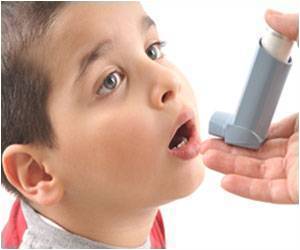Asthama is currently a major public health challenge. So a study was conducted that could potentially lead to effective treatments and prevention of asthma.

Virender Rehan, M.D., principal investigator at The Los Angeles Biomedical Research Institute at Harbor-UCLA Medical Center (LA BioMed), focuses on understanding the detrimental effects of maternal smoking, not only on the exposed offspring but also on the many generations that follow.
More specifically, the proposed study will determine if the risk of childhood asthma induced following exposure to cigarette smoke during pregnancy is limited only to the offspring of the exposed pregnancy, or if this risk is carried to grandchildren or even great-grandchildren.
"While it is widely known that maternal smoking can pose problems for an unborn child, including asthma, this study is important in that it sheds light on the depth of the issue and raises concerns about the effects of smoke exposure during pregnancy on subsequent generations," said Dr. Rehan.
Studies have shown that exposure to nicotine in utero affects lung growth and differentiation by altering specific mechanisms that are necessary for fetal lung development, which often results in an offspring's predisposition to asthma.
Now there is strong evidence that these alterations in the structure and function of the lung caused by nicotine exposure during pregnancy can be passed from one generation to the next.
Moreover, by using comprehensive cell-molecular-epigenetic studies to understand the transgenerational effects of smoking on the prevalence of asthma, this study can potentially lead to effective interventions and prevention of this disease, which currently is a major public health challenge.
Source-ANI
 MEDINDIA
MEDINDIA



 Email
Email










